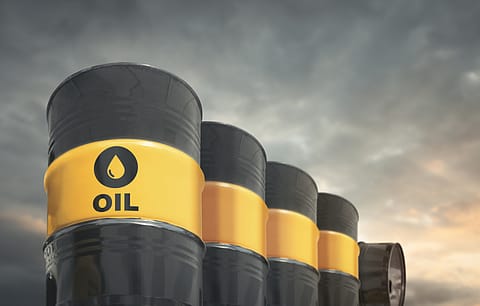Govt cuts windfall tax on domestic crude oil, diesel, ATF
Following this development, shares of Oil & Natural Gas Limited (ONGC), the country’s largest oil and gas producer surged 4.08% to hit an intra-day high of ₹152 apiece on the Bombay Stock Exchange.

Amidst the rise in international crude oil prices, the government on Thursday slashed the windfall tax on domestically produced crude oil from ₹5,050 per tonne to ₹4,350 per tonne. The additional excise duty on ATF has also been cut to ₹1.5 per litre from ₹6 per litre, and the tax on the export of diesel has been slashed to ₹2.5 per from the previous ₹7.5 per litre, as per the notification by the Ministry of Petroleum and Natural Gas. The new rates will be effective from February 16, 2023.
Following this development, shares of Oil & Natural Gas Limited (ONGC), the country’s largest oil and gas producer surged 4.08% to hit an intra-day high of ₹152 apiece on the Bombay Stock Exchange, while Bharat Petroleum Corporation Ltd (BPCL) stock declined 1.34% to ₹326.75. The share price of Indian Oil Corporation Ltd was trading marginally higher by 0.44% at ₹79.85. Shares of Hindustan Petroleum Corporation Ltd (HPCL) declined by 1.66 % to ₹231.30, and the share price of Reliance Industries advanced 0.57% to ₹2,444. The NSE Nifty energy index surged 0.42% to 22,442.
On Thursday, Brent crude futures surged 42 cents or 0.5% to $85.50 per barrel by 0352 GMT, while US West Texas Intermediate (WTI) crude futures gained 48 cents, or 0.6% to $79.07 per barrel.
India initially imposed the windfall tax on exports of crude oil, diesel and aviation fuel in July 2022 after private refiners preferred overseas markets to gain from high refining margins, instead of selling at lower-than-market rates in the country. The tax rates are revised every fortnight based on prevailing international rates. The three state-owned oil retailers — Indian Oil Corporation Limited (IOCL), Bharat Petroleum Corporation Limited (BPCL) and Hindustan Petroleum Corporation Limited (HPCL) together control around 90% of the fuel retailing network in the country.
The government had earlier said that the prices of petrol and diesel have not been increased by public sector oil marketing companies (OMCs) since April 6, 2022, despite record-high international prices. As a result, the three state-run fuel retailers — Indian Oil Corporation, BPCL and HPCL — booked a combined loss of ₹27,276 crore in the first six months of the ongoing financial year, against the combined profit before tax of ₹28,360 crore in the first half of the financial year 2021-22.
Rating agency Moody’s last month said that the country’s windfall tax on exports of locally-produced oil has helped reduce the state-owned refining and marketing companies' marketing losses.
"The three companies have been able to secure a discount of an amount equal to the export duties on their purchases from private-sector refiners, which lowered the cost of buying the fuels. HPCL has benefited the most from these discounts because it has the highest proportion of external purchases among the three companies," the rating agency said.